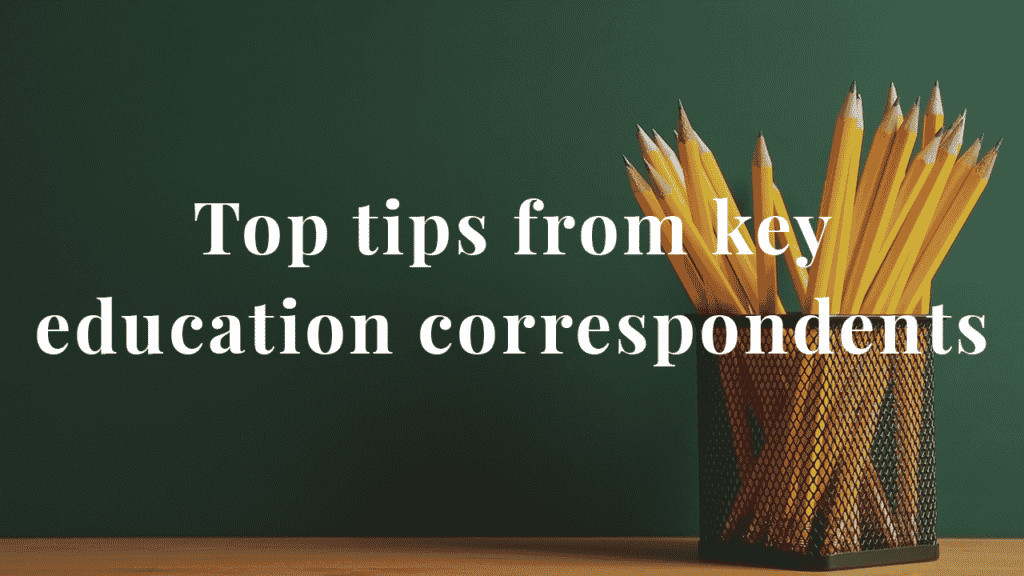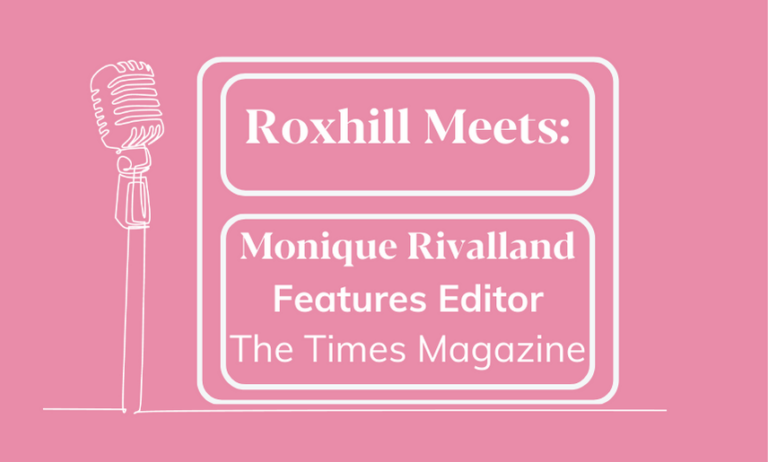Top tips from key education correspondents Eleanor Busby, Will Hazell and Camilla Turner
Eleanor Busby – Education Editor, The Daily Telegraph
Will Hazell – Education Correspondent, The i (Paper)
Camilla Turner – Education Correspondent, PA Media
In our recent webinar ‘Coronavirus, education and what journalists need’ we asked leading national education correspondents to discuss how they have been covering education during the lockdown, and how you can best work with them.

How has the nature of the newsroom and reporting on stories changed as a result of lockdown?
Eleanor Busby:
Education usually involves a lot of embargoed reports and a calendar of events that you can plan ahead for. Whilst these are still important, a lot of our time is now spent trying to anticipate and understand what is going to happen as a result of the lockdown e.g. how will exam results be impacted?
PA Media still runs a lot of reports, but they now have a coronavirus angle. There is a much bigger focus on calling people and using social media to find stories e.g. to see if there are concerns amongst school leaders. Everything is a lot more fast-paced now and revolves around trying to gain clear answers in a period of great uncertainty.
Will Hazell:
Deadlines have moved forward due to the complications introduced into the production process i.e. now more than ever, there is a big emphasis on getting copy over sooner rather than later. The normal education calendar has been disrupted by everything that’s now happening and the new cycle is going through strange peaks and troughs.
Sometimes there will be a lot of education related news (particularly if there are any announcements re. schools) and then in the days after that, everything really calms down news wise – it’s all very up and down.
Camilla Turner:
Working from home rather than in a newsroom where you’re able to bounce ideas off one another is a lot more isolating and the nature of the job has certainly changed. It was previously quite cyclical and now everything is up in the air and there’s more of a demand for daily education stories.
Are you interested in non-COVID stories at the moment?
Eleanor Busby:
Coronavirus is still the number one focus, but there is now an introduction of stories that aren’t necessarily about the virus. Covid-19 is still really relevant and so most stories do still have a link to it.
Will Hazell:
It’s difficult to get non-covid stories into the paper depending on the daily news (e.g. a PM announcement) but there is still an appetite amongst readers to hear something non-covid related and so sometimes a really good news story (with a strong news angle) will still work within the paper.
Interested in receiving non-covid pitches at the moment but the news is already so full of articles re. home schooling and EdTech etc. Any stories they’re interested in will have to be substantially different to stories already out there.
Camilla Turner:
There is still a demand for non-coronavirus stories but there are 13 pages for UK news, and around 10/11 pages are dedicated solely to Covid and so the remaining pages are saved for really amazing news stories.
With education, the whole of education has been so impacted by coronavirus and so any other stories are seen as insignificant (e.g. an interview with a headteacher has been rejected by the news desk). A story needs to be of national significance (i.e. affecting multiple families or multiple schools across the country) in order to be considered relevant.
Looking ahead into the summer term, what stories will become more important in education?
Eleanor Busby:
The summer term is usually focused on exam stories and results day and even though the nature of this period is different, it will still be focused on results, how teachers will be grading students, and what this means for students and their university places. The focus will remain on all of these topics even though the nature of grading has been changed due to the exams being cancelled.
Will Hazell:
Exams this summer will still be a massive story, particularly because there will be an unprecedented form of assessment – it will be interesting to see if this goes seamlessly and whether students will come away with results they are happy with, or if there will be a lot of controversy about the process – whether it has worked well or if students have not received correct grades.
Topics include – Appeals, students choosing to take the autumn exam sitting offered by the government, university submissions and if students will be able to go to university in September in the normal way or not. Universities will be a growing story, particularly around international student fees and the financial impact.
Camilla Turner:
Normal themes of results day and university will stay fundamentally the same but the main focus will be the impact Coronavirus has had.
What is the best way to pitch during this period?
Eleanor Busby:
Emails are the best, phone calls just don’t work. Embargoes need as much notice as possible, ie pre-midday of the day before it will go out. Now more than ever it’s best to send things as early as possible. Follow up emails are better than phone calls. Every week is different, but Mondays and Fridays generally tend to be quieter.
Will Hazell:
Definitely via email, not phone. If you’ve got an idea of potential pieces which you could help with, it’s useful to include these in the email.
Camilla Turner:
Emails are best so she can see all the information clearly – include as much information as possible in the initial emails. All stories have to be pitched by 11am every day, so emailing early in the morning is best.
What do you consider to be a features idea?
Will Hazell:
Something distinct from a conventional news story. It doesn’t necessarily have to be ‘new’, although obviously the piece has to feel fresh, and it will often need some sort of hook which has been in the news to justify it. I’m also always looking for news lines to fall out of a feature. A feature gives me the opportunity to explore a topic at length and in greater detail. I can also add a bit more ‘colour’. If there’s a strong human element it helps.
In terms of feature ideas for the i, fundamentally it has to be something which an ordinary member of the public will be interested in reading about (if it’s a quite technical subject related to the teaching profession or the education sector it is very unlikely to make). A couple of example of features I’ve done recently are on the decline of handwriting, what life is like in an alternative provision school, and why Britain struggles with foreign languages and what we can do about it.
We also do profiles of interesting people in education, e.g. Katharine Birbalsingh (again, the crucial test is, ‘would the man or woman in the street be interested reading this person’).
How much of a focus will there be in the summer term around the impact the different grading system will have on children, e.g. mental health?
Will Hazell:
Huge interest in anything relating to this summer’s exam season, particularly whether it is fair for students. The mental health impact would definitely be an interesting angle, but obviously there would need to be a proper basis for the story (e.g. research which stands up, a very credible expert commenting on it, schools concerned about the impact or doing interesting things to help prepare their students etc).
Are you happy to receive written quotes on education related topics or would you prefer to interview people?
Camilla Turner:
Yes sending quotes is fine, it is useful for me to say what they are keen to talk about. If I think it sounds good I will ask for a follow up interview.
Is there an appetite for human interest style features on pupils/teachers etc and the impact from COVID? For instance a boarding pupil that is now continuing studies in China etc.
Camilla Turner:
Not for me, I only do news. We have a whole features desk who handle features.
For proposed school/university/education leader op-eds, who is the best person to approach on the Daily Telegraph?
Camilla Turner:
Me, in the first instance.
Request a free trial today and learn how Roxhill’s topic led media database can help you effectively target journalists and news outlets around the world.











